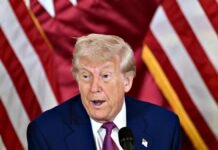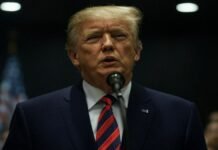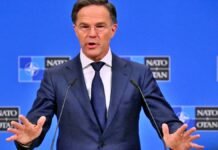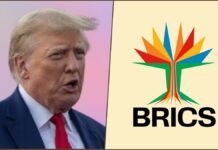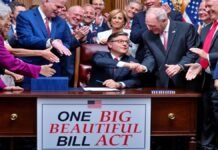
Beijing/Washington: China issued a stark warning on Tuesday, emphasizing that “no one will win a trade war,” following US President-elect Donald Trump’s announcement of sweeping tariffs on goods from China and other countries. Trump’s pledge, made through posts on his Truth Social account, ties the proposed tariffs to Beijing’s alleged failure to tackle fentanyl smuggling and broader issues of illegal drug trade and immigration.
Trump’s Tariff Threats: A Hardline Stance on Trade and Drugs
Trump revealed his plans to impose a 10% tariff on all goods from China, beyond existing duties, as part of his economic agenda. He also hinted at a broader trade crackdown against some of the United States’ largest trading partners, signaling his intent to reshape global trade relationships.
The former president justified the measures by accusing China of enabling the flow of fentanyl precursors into the United States. Fentanyl, a powerful synthetic opioid, has been a key driver of the opioid crisis, leading to thousands of deaths annually in the U.S.
In his statement, Trump reiterated his campaign promise of prioritizing American manufacturing and jobs, asserting, “It’s time we hold those who harm our country accountable. China’s actions, or lack thereof, in combating fentanyl smuggling demand a strong response.”
China Responds: Call for Dialogue, Defending Efforts Against Drug Trafficking
China swiftly rejected the allegations. Liu Pengyu, spokesperson for the Chinese embassy in Washington, emphasized the mutual benefits of China-US trade and criticized the proposed tariffs. In an email to AFP, Liu said, “China believes that China-US economic and trade cooperation is mutually beneficial in nature.”
Liu also highlighted Beijing’s ongoing efforts to combat the fentanyl trade, detailing steps taken to regulate precursor chemicals and enhance international cooperation. “The idea that China knowingly allows fentanyl precursors to flow into the United States runs completely counter to facts and reality,” he asserted.
Beijing’s Stance on Dialogue and Trade Relations
At a press briefing, Mao Ning, a spokeswoman for China’s foreign ministry, signaled Beijing’s willingness to engage with the incoming US administration. “As a principle, we are open to maintaining dialogue and communication,” she said when asked whether China had initiated talks with Trump’s team.
The Chinese response also underscored the potential risks of escalating tensions. “A trade war serves no one,” Mao warned, adding that collaboration, not confrontation, is the way forward for the two economic giants.
Tariffs: A Signature of Trump’s Economic Vision
Tariffs have long been a cornerstone of Trump’s trade strategy. During his presidency, he implemented wide-ranging duties on imports from China, sparking a trade war that impacted global markets. Critics argue that such measures strain diplomatic ties and hurt consumers, while supporters praise them as essential for protecting American industries.
Broader Regional Implications
Trump’s hardline stance comes amidst rising tensions in the Asia-Pacific region. Beijing has been closely monitoring US moves, including increased defense partnerships with Japan and the Philippines and growing support for Taiwan. Meanwhile, China has ramped up military activities, including shadowing US spy planes and issuing stern warnings regarding regional missile deployments.

A Test for US-China Relations
As Trump doubles down on tariffs and trade-related issues, the stage is set for another turbulent chapter in US-China relations. With both nations deeply intertwined economically, the global community watches closely to see whether dialogue or conflict will define their interactions in the years to come.







